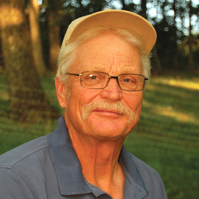By Jim Van Der Pol, Kerkhoven, Minnesota — I have been thinking about the poster the Kerkhoven blacksmith had hanging on the wall a half century ago, when I would follow Dad everywhere. This was in the mid-’50s, when blacksmiths were still called that, in part because they were not at that time so very far away from shoeing horses. But the horse I noticed was the one on the poster. It was just a line drawing of a horse with its tail raised and a steaming pile of fresh manure on the ground below. Below was inscribed this thought:
Buying quality is like buying oats.
You can buy fresh clean oats for which you will need to pay a fair price.
Or you can buy oats that have already been through the horse.
That comes a lot cheaper.
I noticed this poster at the time due to the novelty of seeing plain farmer language in print, and also because posters were not so common then. I remember it now with such clarity because of the completeness with which we as rural people have lost track of that thought. It has been a slow, steady process since that time, encouraged in us, I think, by very wealthy and powerful folks who have made a nice living for themselves for several generations out of our destruction of ourselves as both a people and a place.
When we made the changes in the ’90s that brought this farm to where it is today, where it sells virtually nothing as a commodity, we were in a corner and willing to do pretty much anything. We could see that something as radical as going to a pasture-based business with hogs, while building direct and wholesale markets and customers for our pork, was a long shot almost certain to result in a spectacular crash. But we also had 20 solid years of experience in commodity row crop and hog production. We knew if we kept going in that direction, the cause was lost for certain. That kind of choice, whether it turns out to be a success or not, does serve to knock the scales off the eyes.
One of the things visible from this perspective is that value is made of price-plus-quality. This truth can be denied by the consumer who always buys whatever is cheapest, and the farmer who dedicates his farming and life to producing the maximum quantity of something. But the reality cannot be changed. By excerpting quality from consideration, both the consumer and the farmer are dealing in something like the commodity lying just under that poster horse’s tail.
The consumer of pork products, for instance, can always find something cheaper than most of what we sell. The first thing she may sacrifice in doing that is taste. But it goes far beyond that. Low price in pork is made of too many hogs crowded into too little space, of hogs separated both from the source of their feed and the destination of their manure. It means hogs tended by underpaid illegal immigrants in some cases. It also means hogs slaughtered at tremendous line speeds by immigrants, both legal and not, who are paid not much over minimum wage to work the 10 years or so that their bodies will last doing that kind of labor at those speeds.
And the farmer knows this. He or she also knows that the act of farming itself has been getting less and less satisfying each year. That more and more inputs are used at a higher and higher price, and that the more he tries to ease his life a little, the harder it seems to get. He runs harder to stay even.
The part that most people don’t get is that anything produced to a standard rather than with a goal of quality is always a commodity and, as such, will always benefit someone else more than the original producers. That is because someone else is adding the illusion of quality later in the process. This is what the hog industry is doing when it puts its commodity sausage into a plastic tube and then gets its advertising “creatives” to put a cute, old-fashioned farmer on the label.
The upshot of all this for our rural places is of course Pogo’s dictum: “We have met the enemy and he is us.” We cannot make a quality life out of high-priced inputs and cheap food.
Jim Van Der Pol grazes and direct markets pork, chicken and beef from his farm near Kerkhoven, Minnesota.

